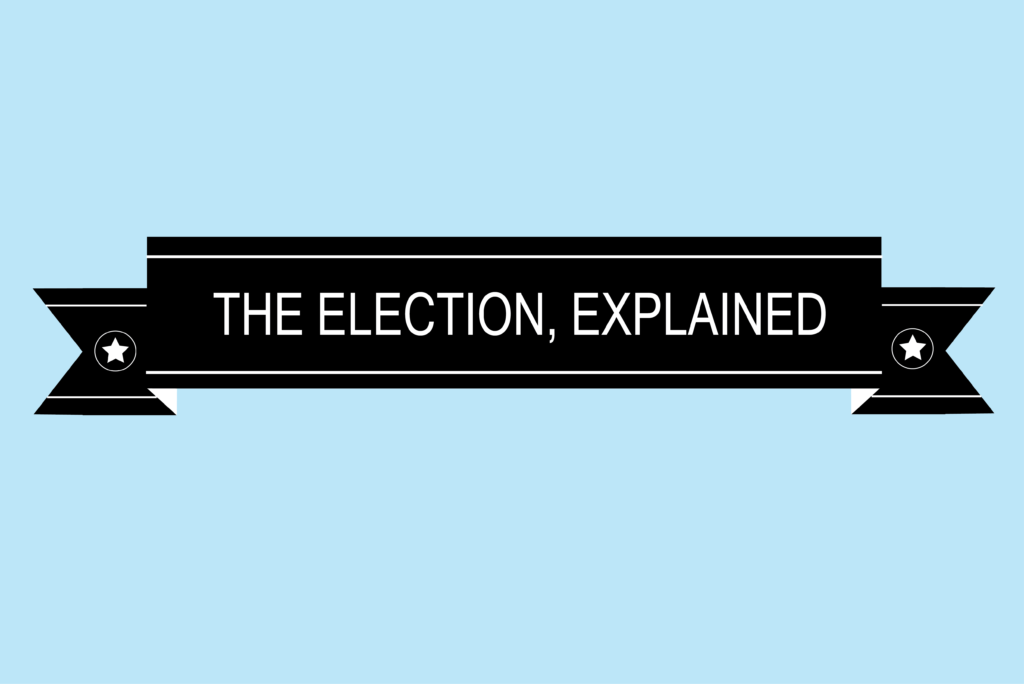Student Association elections are this week. Here is everything you need to know before casting your ballot in the 2020 race.
When did the SA election season begin?
Candidates started announcing bids for president and executive vice president seats in early February this year. Each candidate compiled a list of initiatives and platform points they plan to tackle if elected to their prospective position.
Who is eligible to run?
Any full-time, degree-seeking student at GW is eligible to run for an SA seat, according to the SA constitution. Candidates were required to register themselves as candidates by Feb. 15, then collect signatures of support from fellow students to secure candidacy by Feb. 22. Students vying for president and executive vice president positions needed to collect 500 signatures, and those seeking senator positions collected between 50 and 150 signatures depending on the school they’re running to represent. Write-in candidates cannot run for president or executive vice president seats.
How many candidates are running this year?
Six students are running for the SA’s presidential seat and two students for the executive vice president seat. More than 20 students are vying for senator positions to represent various schools, like the Elliott School of International Affairs and Milken Institute School of Public Health.
How do I decide for whom to vote?
Each candidate for president and executive vice president sat down with The Hatchet earlier this election season to discuss their platform initiatives. Click on each name to read their platforms: Bishop Walton, Christian Zidouemba, Drew Amstutz, George Glass, Georgie Britcher, Howard Brookins, Andy Liaupsin and Brandon Hill.
What are the different responsibilities of the president and executive vice president?
The president oversees the executive branch of the SA. They appoint a cabinet of vice presidents like senior policy advisers and directors of areas like Greek affairs, student engagement and public health. The executive vice president is responsible for the legislative branch, which means running SA senate meetings and communicating with senators who are proposing bills, drafting new policies and working on policy projects.
What is an SA senator?
A senator is responsible for representing a school and students within that school according to their elected seat, like the School of Media and Public Affairs or the Elliott School of International Affairs. Each school is assigned at least one undergraduate and one graduate senator.
When is election day?
SA elections take place April 8 and 9.
How do I vote?
An email will be sent to all students’ GW accounts with a ballot of all senate, executive vice president and president candidates as well as referendums to vote on through GW Engage. Each student will rank their choices for the position of president and executive vice president. Individual senator positions will not have ranked-choice ballots.
Who administers the election?
The Joint Elections Commission oversees the SA election each year. The JEC hosts events throughout election season like postering day and a town hall, ensures all candidates abide by election rules and regulations and adds up rankings to announce the winners of each SA position.
When will winners be announced?
The JEC will announce winners roughly 24 hours after the ballot closes April 9.
What is a referendum?
Referendums are proposals from the SA put forth for the student body to vote on that, if approved by a majority, may adjust the SA constitution, be used to show support for an issue or lobby officials to make a change. The referendum to add a discrimination policy to the SA’s constitution led to a tangible change after it was approved, while the referendum about swapping out GW’s Colonials moniker demonstrated how many students back the effort. There are five referendums on this year’s ballot.
Do I need to register to vote?
No. Any full-time undergraduate or graduate student pursuing a degree is automatically eligible to vote.
Can a candidate be disqualified from the race?
Yes. A candidate found in violation of the Student Manual given to candidates upon registering for the election can be disqualified from the race pending a JEC decision. Any student can file a complaint with the JEC if they suspect a candidate has committed a violation, which ranges from breaking the Student Code of Conduct to violating the SA constitution.
Has a candidate ever been disqualified from the race?
Yes. In 2017, a presidential candidate was disqualified from the race after the Division of Student Affairs and the JEC ruled in favor of a complaint accusing the candidate of harassment and intimidation against another presidential candidate.
Are students provided with University funding to campaign?
No. All candidates are expected to finance their own campaigns, but financial limitations are attached to each SA campaign position. For example, president and executive vice president candidates cannot exceed a budget of $300.
Who is The Hatchet endorsing?
The Hatchet’s editorial board – a group of opinion writers and staff members on the Hatchet staff who are not affiliated with the news section – interviewed all presidential and executive vice president candidates about their platforms in March. Click here to see who they’re backing for each position and why.







